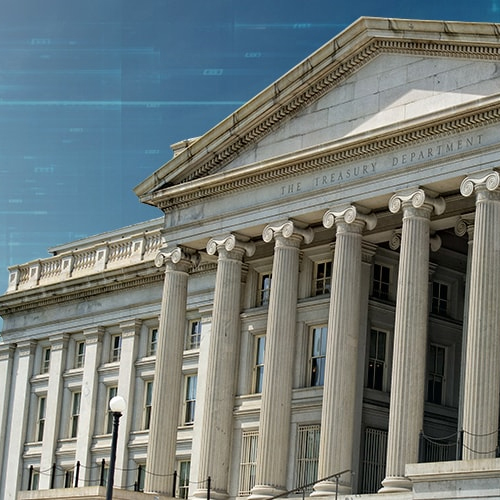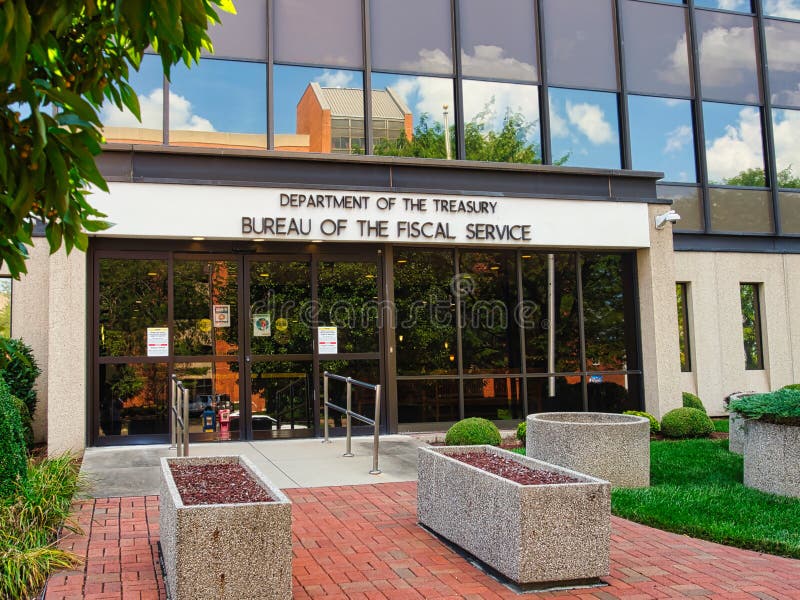At the heart of the United States financial system lies the U.S. Treasury Department's Bureau of the Fiscal Service, an essential entity tasked with managing the country’s financial operations. This bureau plays a pivotal role in ensuring the fiscal stability of the nation by handling debt management, cash management, and financial systems administration. Established to streamline financial operations and improve efficiency, the Bureau of the Fiscal Service operates with transparency and accountability, ensuring that taxpayer funds are managed responsibly. Understanding its functions is crucial for anyone interested in the inner workings of U.S. fiscal policy.
As a key player in the federal government's financial infrastructure, the U.S. Treasury Department's Bureau of the Fiscal Service is responsible for a wide range of activities that impact the economy. From issuing government securities to processing payments and maintaining the public debt, the bureau ensures that the government’s financial obligations are met efficiently. Its commitment to innovation and modernization has allowed it to adapt to the evolving financial landscape, making it a critical component of the nation’s financial framework.
For those seeking to understand the complexities of federal finance, the Bureau of the Fiscal Service offers valuable insights. By exploring its role in debt management, its contribution to fiscal policy, and its efforts to enhance financial systems, readers can gain a deeper appreciation for the intricate mechanisms that support the nation’s economic health. This article delves into the bureau's operations, shedding light on its significance in the broader context of U.S. financial governance.
Read also:Ben Afflecks Current Residence Unveiling His Luxurious Lifestyle
- What is the Role of the U.S. Treasury Department's Bureau of the Fiscal Service?
- Key Functions and Responsibilities
- How Does the Bureau Manage Public Debt?
- Financial Systems and Modernization Efforts
- Impact on Fiscal Policy
What is the U.S. Treasury Department's Bureau of the Fiscal Service?
The U.S. Treasury Department's Bureau of the Fiscal Service is a government agency that plays a vital role in managing the nation’s finances. Established to centralize financial operations, the bureau is responsible for a variety of tasks, including the issuance of government securities, the management of public debt, and the administration of federal payments. Its mission is to ensure the financial stability of the United States by providing efficient and effective financial services to the federal government.
Why is the Bureau of the Fiscal Service Important?
The importance of the U.S. Treasury Department's Bureau of the Fiscal Service cannot be overstated. It serves as the backbone of the federal government’s financial infrastructure, ensuring that funds are managed responsibly and transparently. By overseeing the issuance of Treasury securities, the bureau helps finance the government’s operations while maintaining confidence in the U.S. financial system. Additionally, its efforts to modernize financial systems contribute to greater efficiency and security in federal transactions.
How Does the Bureau of the Fiscal Service Contribute to Fiscal Policy?
The U.S. Treasury Department's Bureau of the Fiscal Service plays a critical role in shaping fiscal policy by managing the government’s debt and ensuring the availability of funds for federal programs. Through its debt management strategies, the bureau helps stabilize the economy and maintain investor confidence. By analyzing market conditions and adjusting borrowing practices accordingly, it supports the government’s ability to implement effective fiscal policies.
Key Functions and Responsibilities
The U.S. Treasury Department's Bureau of the Fiscal Service is responsible for several key functions that underpin the nation’s financial health. These include debt issuance, cash management, and the administration of federal payments. By efficiently managing these areas, the bureau ensures that the government can meet its financial obligations while maintaining fiscal stability.
Managing Public Debt: A Core Responsibility
One of the primary responsibilities of the U.S. Treasury Department's Bureau of the Fiscal Service is managing public debt. This involves issuing Treasury securities such as bills, notes, and bonds to finance government operations. The bureau carefully monitors market conditions to ensure that borrowing is conducted at optimal rates, minimizing costs while maintaining investor confidence.
What Are the Types of Treasury Securities Issued by the Bureau?
The U.S. Treasury Department's Bureau of the Fiscal Service issues various types of Treasury securities to meet the government’s financing needs. These include Treasury bills, which mature in one year or less; Treasury notes, which have maturities ranging from two to ten years; and Treasury bonds, which mature in 20 or 30 years. Each type of security serves a specific purpose in managing the government’s debt portfolio.
Read also:Unveiling The Ultimate Guide To Volaris Travel Information
Financial Systems and Modernization Efforts
The U.S. Treasury Department's Bureau of the Fiscal Service is committed to modernizing financial systems to enhance efficiency and security. By adopting cutting-edge technologies and implementing best practices, the bureau ensures that federal financial operations are conducted with the highest standards of accuracy and reliability. This commitment to innovation is essential in addressing the evolving challenges of the financial landscape.
What Steps is the Bureau Taking to Modernize Financial Systems?
To modernize financial systems, the U.S. Treasury Department's Bureau of the Fiscal Service is investing in advanced technologies such as blockchain and artificial intelligence. These tools enable the bureau to streamline processes, reduce costs, and improve the security of financial transactions. By embracing innovation, the bureau is better equipped to meet the demands of a rapidly changing financial environment.
Impact on Fiscal Policy
The U.S. Treasury Department's Bureau of the Fiscal Service has a significant impact on fiscal policy by managing the government’s debt and ensuring the availability of funds for federal programs. Its debt management strategies and financial systems administration play a crucial role in supporting the government’s ability to implement effective fiscal policies. By maintaining transparency and accountability, the bureau enhances public trust in the nation’s financial system.
How Does the Bureau Support Economic Stability?
Through its debt management practices and financial oversight, the U.S. Treasury Department's Bureau of the Fiscal Service supports economic stability by ensuring that the government can meet its financial obligations. By carefully analyzing market conditions and adjusting borrowing strategies as needed, the bureau helps stabilize the economy and maintain investor confidence. This, in turn, contributes to the overall health of the U.S. financial system.
Conclusion
The U.S. Treasury Department's Bureau of the Fiscal Service is an essential component of the nation’s financial infrastructure, responsible for managing the government’s finances and ensuring fiscal stability. By overseeing debt management, cash management, and financial systems administration, the bureau plays a critical role in supporting the federal government’s operations. Its commitment to innovation and modernization ensures that it remains a leader in the field of financial management, contributing to the long-term health of the U.S. economy.
Understanding the functions and responsibilities of the U.S. Treasury Department's Bureau of the Fiscal Service is crucial for anyone interested in the complexities of federal finance. By exploring its role in debt management, fiscal policy, and financial systems administration, readers can gain valuable insights into the mechanisms that support the nation’s economic health. As the bureau continues to evolve and adapt to changing conditions, it remains a vital force in shaping the future of U.S. fiscal policy.


